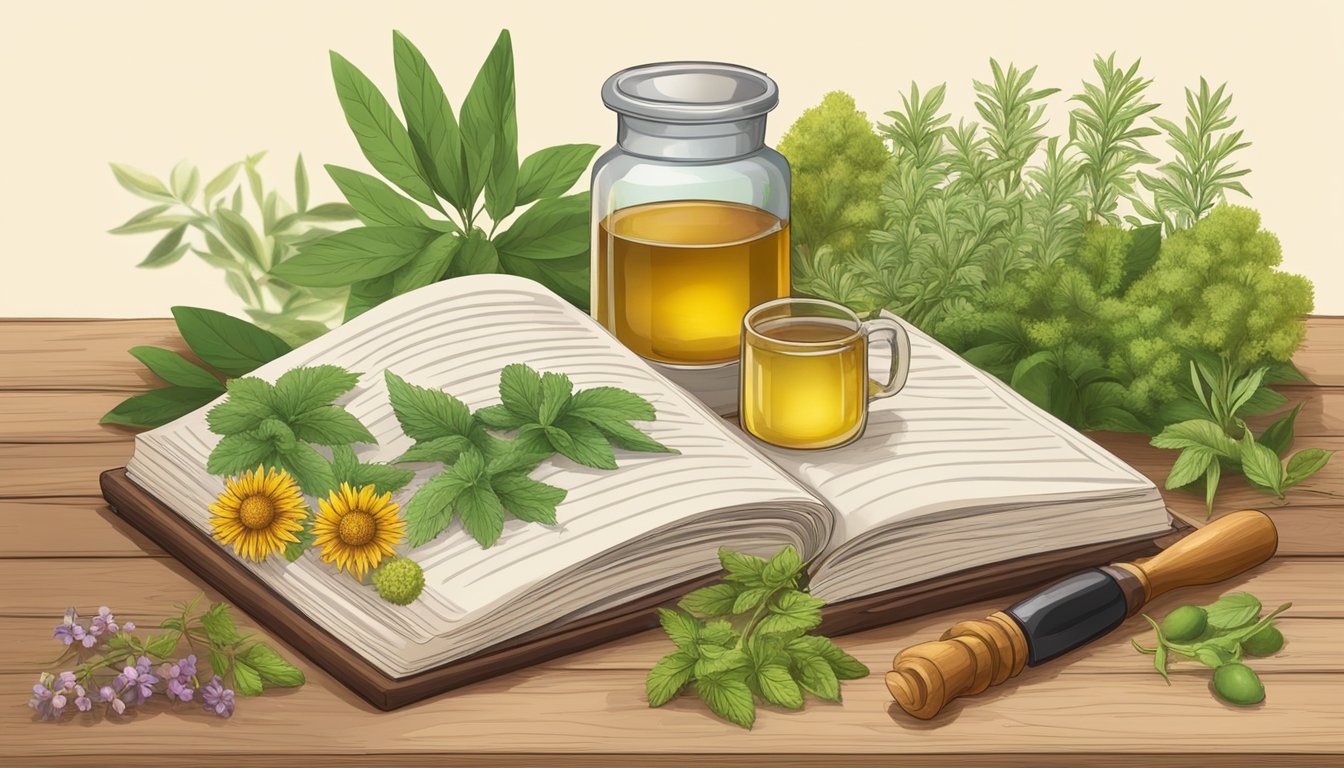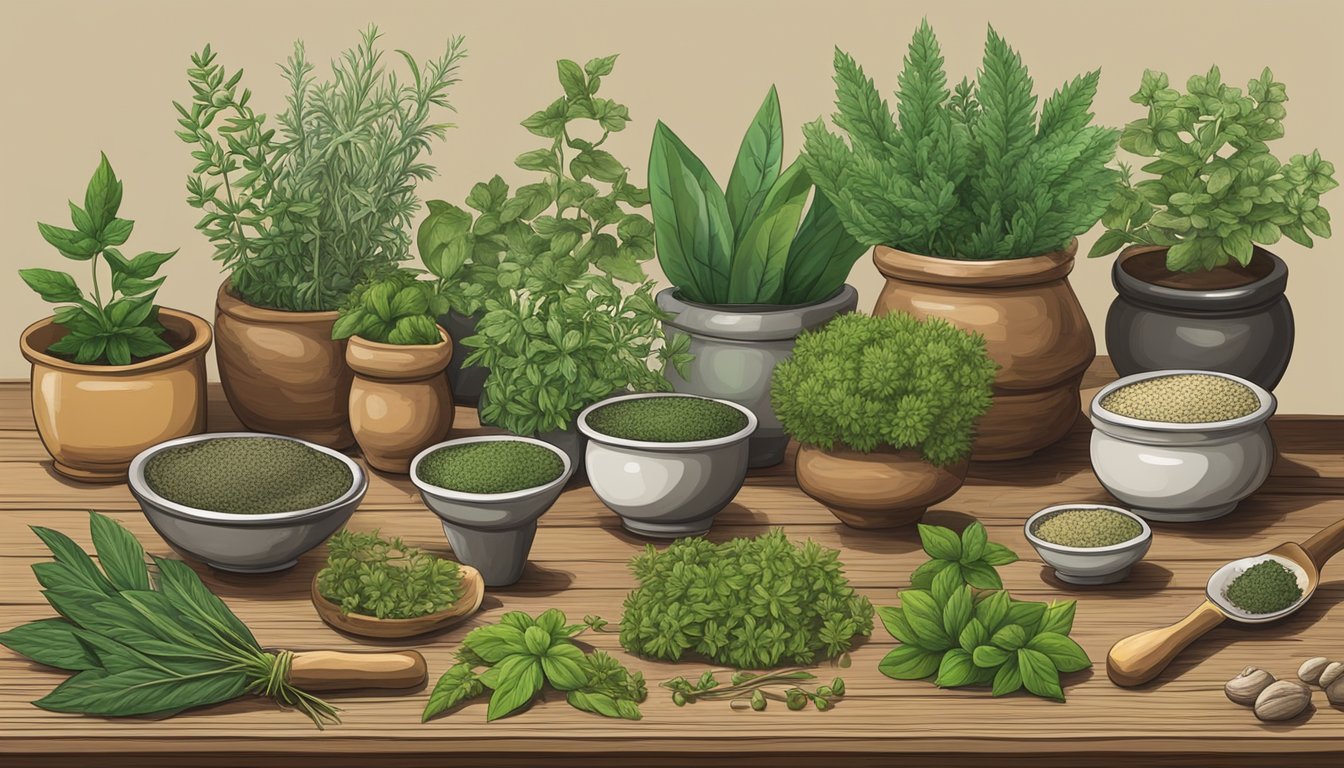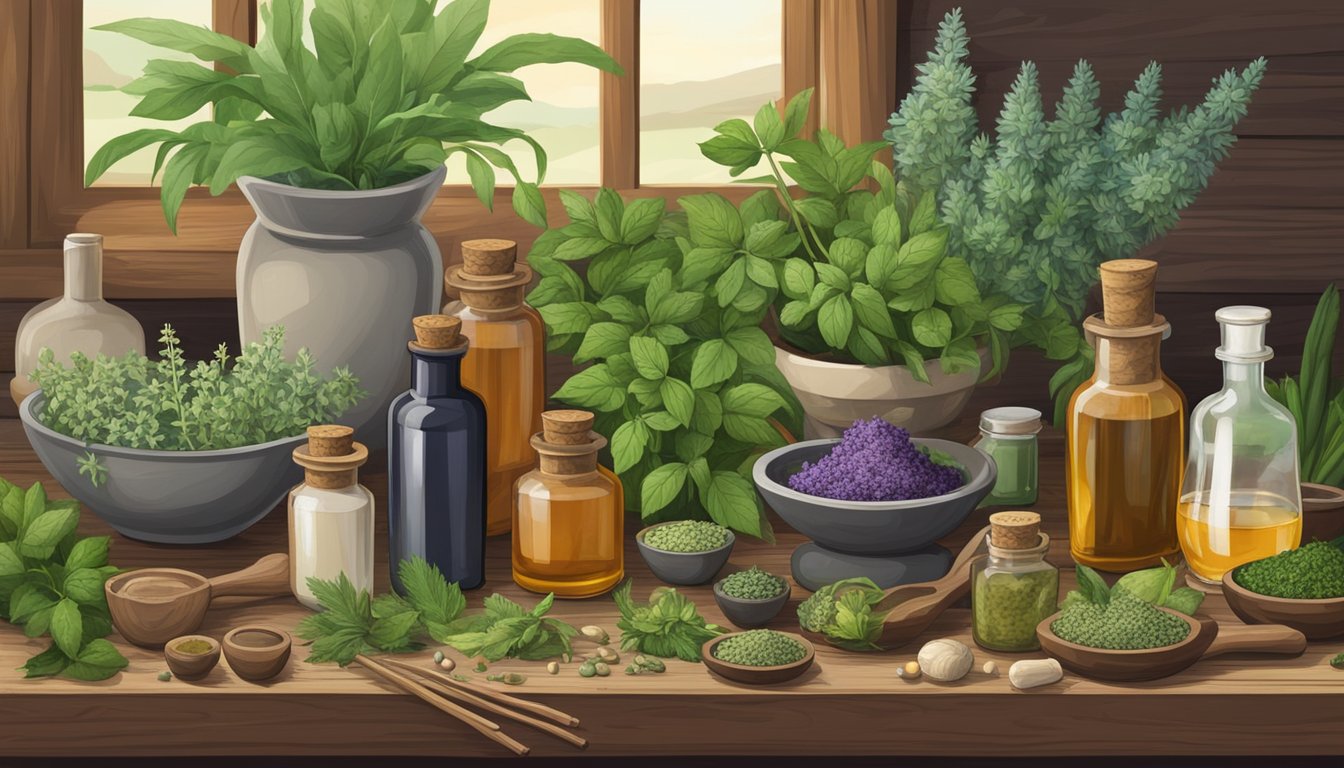TheHerbProf.com is a treasure trove of knowledge for those interested in natural healing and herbal remedies. The website is run by Paul Johnston MD. A naturopathic who has not only received extensive education in the field but also has personal experience in self-healing.
Herbal remedies have been used for centuries in traditional medicine to treat a wide range of ailments. However, the effectiveness of these remedies is often debated in modern medicine. As someone who is interested in natural health remedies, I have often wondered whether herbal remedies are truly effective.
Herbal medicine is a form of natural medicine that uses plants or plant extracts to treat various health conditions. Proponents of herbal medicine argue that it is a safer and more natural alternative to traditional medicine, which can have harmful side effects. However, critics argue that the effectiveness of herbal remedies is not backed by scientific evidence and that they can be dangerous if not used properly.
In this article, I will explore the effectiveness of herbal remedies and provide an objective analysis of their benefits and drawbacks. I will examine the scientific evidence behind some of the most popular herbal remedies, as well as their potential risks and side effects. By the end of this article, you will have a better understanding of whether herbal remedies are truly effective and how to use them safely.
What Is Herbal Medicine?
Definition
Herbal medicine, also known as herbalism or phytotherapy, is a form of alternative medicine that uses plants or plant extracts to treat various symptoms, diseases, and conditions. It is a practice that has been used for thousands of years in traditional Chinese medicine and other ancient healing systems.
Active Ingredients
Herbal remedies contain active ingredients that are derived from medicinal plants, such as roots, leaves, flowers, and seeds. These ingredients can be used in different forms, such as tea, tinctures, capsules, or extracts. Some herbs also contain essential oils that are believed to have therapeutic properties.
Medicinal Uses
Herbal medicines are used to treat a wide range of symptoms, diseases, and conditions. They are often used as a dietary supplement or as a natural alternative to conventional medicine. Some common uses of herbal remedies include:
- Depression, anxiety, and stress: Some herbs, such as St. John’s Wort, are believed to have antidepressant properties and can be used to treat mild to moderate depression.
- Flu and colds: Echinacea is a popular herb that is used to boost the immune system and prevent or treat colds and flu.
- Arthritis: Some herbs, such as turmeric and ginger, are believed to have anti-inflammatory properties and can be used to relieve pain and inflammation associated with arthritis.
- Diabetes: Some herbs, such as ginseng and bitter melon, are believed to have blood sugar-lowering properties and can be used to manage diabetes.
It is important to note that while herbal remedies can be effective in treating certain symptoms and conditions, they should not be used as a substitute for conventional medicine. It is always best to consult with a healthcare professional before using any herbal medicines, especially if you are taking other medications or have a pre-existing medical condition.
Potential Issues With Herbal Medicine

As with any form of medicine, there are potential issues with herbal remedies that must be considered. While many people believe that herbal medicine is a safe and effective alternative to conventional medicine, the reality is that there are limited scientific evidence and clinical trials to support the efficacy of many herbal remedies.
Limited Evidence For Effectiveness
One of the biggest issues with herbal medicine is the lack of scientific evidence to support the claims made by manufacturers and practitioners. While some herbal remedies have been shown to be effective in clinical trials, many have not been rigorously tested, and there is limited evidence to support their use. This makes it difficult for consumers to make informed decisions about which remedies to try.
Interactions With Other Medications
Another potential issue with herbal medicine is the risk of interactions with other medications. Some herbal remedies may interact with prescription drugs, causing potentially dangerous side effects. This is particularly concerning for people who are taking multiple medications or who have underlying health conditions.
Quality And Safety Concerns
There are also quality and safety concerns with herbal medicine. Unlike prescription drugs, herbal remedies are not regulated by the FDA, and there is no standardized system for ensuring their safety and efficacy. This means that there is a risk of contamination, and some herbal remedies may contain toxic or allergenic compounds. It is important to be cautious when using herbal remedies and to only purchase products from reputable manufacturers.
While herbal medicine may be a viable alternative to conventional medicine for some people, it is important to be aware of the potential issues and to make informed decisions about which remedies to try. It is also important to speak with a healthcare provider before using any herbal remedies, especially if you are taking other medications or have underlying health conditions.
Special Considerations For Herbal Medicine Use

Herbal remedies have been used for centuries to treat various ailments and improve overall health. However, it is important to consider some special considerations when using herbal medicine.
Consultation With Healthcare Professional
It is important to consult with a healthcare professional before using any herbal remedy, especially if you are pregnant, breastfeeding, or have a chronic medical condition. Your healthcare provider can help you determine if an herbal remedy is safe for you to use and can also provide guidance on dosage and potential interactions with other medications you may be taking.
Safe Purchasing Practices
When purchasing herbal remedies, it is important to ensure that you are buying from a reputable source. Look for products that have been regulated by the FDA or that have a label indicating that they have been third-party tested for purity and safety. Additionally, it is important to follow the dosage guidelines provided on the label or by your healthcare provider.
Reporting Side Effects
Just like with any medication, herbal remedies can have adverse effects. It is important to report any side effects you experience to your healthcare provider or to the FDA’s MedWatch program. By reporting side effects, you can help ensure that others are aware of potential risks associated with the use of certain herbal remedies.
Overall, herbal remedies can be a safe and effective way to improve your health. However, it is important to use them responsibly and to consult with a healthcare professional before use. By following these guidelines, you can ensure that you are using herbal remedies safely and effectively.
Before You Go – Are Herbal Remedies Effective?

Herbal remedies can be effective for certain health conditions. However, it is important to note that not all herbal supplements are created equal. It is crucial to do your research and consult with a healthcare professional before taking any natural remedies.
While there is evidence to support the health benefits of some herbal supplements, it is important to remember that lifestyle factors such as diet and exercise also play a significant role in overall well-being. Incorporating healthy habits into your daily routine can have a positive impact on your health and may even reduce the need for herbal supplements.
In summary, herbal remedies can be a useful addition to a healthy lifestyle, but they should not be relied upon as the sole solution to health problems. By taking a holistic approach to well-being, including a balanced diet, regular exercise, and consulting with a healthcare professional, you can optimize your health and potentially reduce the need for herbal supplements.
Are Herbal Remedies Effective? Nature’s Healing Power
Hello, herb enthusiasts! Today, we’re digging into a big question: Are Herbal Remedies Effective? It’s like unearthing nature’s secret healing powers!
Herbal remedies have been used for centuries. They’re like the wise old friend who’s seen it all and has a remedy for everything!
These remedies can be effective for various health issues. It’s like having a personal health coach who knows just the right herbs for you!
But here’s the fun part. By sharing our experiences and reviews on theherbprof.com, we help each other discover the best ways to use these amazing remedies. It’s like a community garden where everyone contributes and everyone benefits!
References – Are Herbal Remedies Effective?
Little Herb Encyclopedia, by Jack Ritchason; N.D., Woodland Publishing Incorporated, 1995
The Ultimate Healing System, Course Manual, Copyright 1985, Don Lepore
Planetary Herbology, Michael Tierra, C.A., N.D., Lotus Press, 1988
Handbook of Medicinal Herbs, by James A. Duke, Pub. CRP Second Edition 2007
The Complete Medicinal Herbal, by Penelope Ody, Published by Dorling Kindersley
Check the Following Articles!
Intra Herbal Juice Review: Benefits and Side Effects
Herbs Tavern Reviews: A Guide to the To Dishes
Frequently Asked Questions – Are Herbal Remedies Effective?

What are the proven benefits of using herbal remedies?
Herbal remedies have been used for centuries to treat various ailments and promote overall health and wellness. Some of the proven benefits of using herbal remedies include reducing inflammation, boosting the immune system, improving digestion, and relieving stress and anxiety. Many herbal remedies have also been shown to have antioxidant properties, which can help protect the body against damage from free radicals.
Can herbal remedies interact with conventional medications?
Yes, herbal remedies can interact with conventional medications, so it is important to talk to your doctor before using any herbal remedies, especially if you are taking prescription medications. Some herbal remedies can interact with blood thinners, antidepressants, and other medications, which can cause serious health problems.
What are the common misconceptions about the safety of herbal medicine?
One common misconception about herbal medicine is that it is always safe because it is natural. However, many herbal remedies can have side effects and interact with medications, so it is important to use them carefully and under the guidance of a healthcare professional. Another misconception is that all herbal remedies are effective, but not all herbal remedies have been scientifically proven to work.
How does one determine the quality of herbal medicine products?
The quality of herbal medicine products can vary widely, so it is important to choose products from reputable manufacturers that follow good manufacturing practices. Look for products that have been standardized to contain a specific amount of the active ingredient, and avoid products that contain fillers or other additives.
What are the potential risks associated with the use of herbal remedies?
Herbal remedies can have side effects and interact with medications, so it is important to use them carefully and under the guidance of a healthcare professional. Some herbal remedies can cause allergic reactions, liver damage, and other serious health problems. It is also important to be aware of the potential for mislabeling and contamination of herbal medicine products.
How has traditional herbal medicine evolved in modern healthcare practices?
Traditional herbal medicine has been used for centuries to treat various ailments and promote overall health and wellness. In modern healthcare practices, herbal medicine is often used in conjunction with conventional medicine to provide a more holistic approach to healthcare. Many healthcare professionals are now trained in the use of herbal medicine and can provide guidance on the safe and effective use of herbal remedies.


